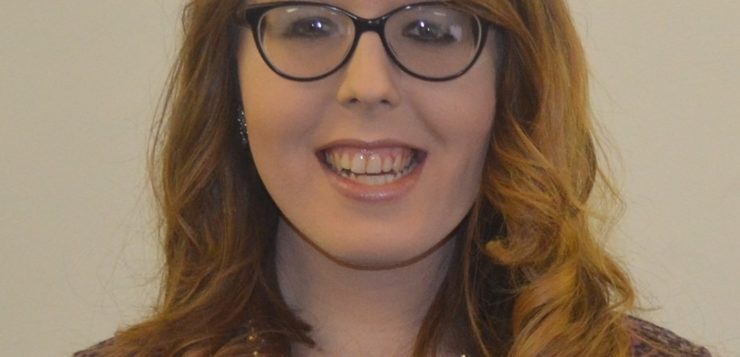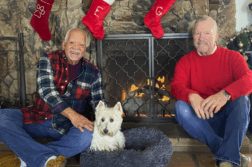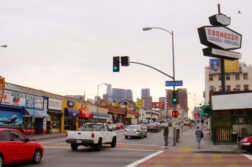I’ve spent my entire professional career bouncing back and forth between journalism and education. I’m only 25, but I’ve been a high school theater and chorus teacher, a general assignment reporter, a college English instructor, and an editor of a small weekly newspaper. Luckily I have done quite well in both arenas. Perhaps that’s because I have a good work ethic and am resourceful. But perhaps it’s because I’ve remained closeted for the entirety of my professional life.
Having entered the workforce right when Obergefell v. Hodges guaranteed the rights of same-sex couples to marry in all fifty states, I didn’t view being a bisexual transgender woman as a strike against me. Clearly that was naiveté on my part, considering that I was applying for jobs in rural southwest Virginia.
My decision to keep my bisexuality and trans status to myself arose out of an old-fashioned desire to be aloof, not out of any sense of shame. As a journalist, and even as a teacher, I had this notion that in order to be taken seriously, I needed to detach my personal identity from my workplace persona. Because of that, I kept any and all personal details about myself to a minimum.
It wasn’t until one of my first-year English composition students wrote about her boss telling her to “stop acting like a tranny” that I realized I had been living in a fantasy world. Unlike me, she didn’t have the luxury of erecting a wall between her LGBT status and her work, because she was in the early stages of her gender transition. Clearly, I was benefiting from being perceived as heterosexual and cisgender by my colleagues, students, and readers at the college where I taught at as an adjunct instructor. Reading this essay was incredibly jarring for me. I was forced to realize that my notion of professionalism was antiquated, if not outright harmful.
After that, I spent weeks wracking my brain to figure out what I could do to help my students and other local LGBT people. Having my students read Garrard Conley’s Boy Erased: A Memoir, which explores the harm that conversion therapy can inflict, or Patricia Highsmith’s The Price of Salt, a 1950s lesbian romance novel that features a happy ending, seemed too small-scale. Sure, my students could have read either one of those fine books and developed a greater understanding of the LGBT community, but I wanted to reach out to more than just the young men and women who were in my classes. The bits and pieces of conversations that I had picked up in class each week led me to believe that they were already fairly socially liberal. For that reason, I decided to reach the grandmas and grandpas out there who genuinely believed that the passage about men lying with other men in Leviticus means that anyone who is gay should be put to death.
I already had direct access to the hearts and minds I wanted to change because of my position as editor of the local newspaper. Instead of writing about local politics and community happenings, I decided to use my weekly editorial to come out to my readership and advocate for greater recognition and acceptance for our local LGBT community.
I’d be lying if I said that the decision to break my years-old rule about distancing my personal and professional lives by writing about my personal journey―discovering my trans identity at an early age, undergoing hormone replacement therapy, having sex-reassignment surgery while in college, and realizing that I was attracted to women after all―was easy. Yet the process of actually sitting at my desk and typing everything up also caused me to feel truly empowered for the first time in my professional life.
Much to my surprise, I received numerous letters to the editor throughout the week following my editorial from other LGBT people, allies, and people who have LGBT family members and were inspired by my openness. If people in the community objected to the contents of my editorial, they kept it to themselves.
The whole process of coming out in such a public way after remaining closeted for so long made me realize that being LGBT isn’t enough in today’s society. In order to be happy, healthy, and productive members of the community, we also have to be allies―each others’ allies.
Although I’ve always deeply admired Harvey Milk, I never truly appreciated his plea: “Gay brothers and sisters, you must come out.” That is, until I finally decided to actually walk the walk. Whether we’re talking about the 1970s or 2020, officially coming out still has the power to bring about significant social change.
 Aila Alvina Boyd is a Virginia-based writer, educator, and award-winning journalist.
Aila Alvina Boyd is a Virginia-based writer, educator, and award-winning journalist.





